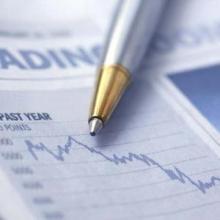Next Economic Crisis Will Be Worse Than Great Recession, BoB Attendees Told
Submitted by Rick Saia on

If you liked the Great Recession, you’ll love what’s coming next, an economist warned in a sobering kickoff address Monday afternoon at the 2015 Best of Breed Conference, sponsored by CRN’s parent, The Channel Company.
Peter Schiff, who has been credited with correctly predicting the collapse in housing prices that led to the financial crisis of 2007, which preceded the recession, told more than 100 conference attendees at the Hyatt Regency Grand Cypress in Orlando, Fla., that the next economic crisis to hit the United States will be rooted in the currency markets, caused by the Federal Reserve's refusal to raise interest rates, even though the central bank has indicated it will do so before the end of the year.
But Schiff, also a financial broker and author, believes the Fed is just talking and won’t act.
"Interest rates are not going to rise"; it's a "myth," he said.
The Fed's "overnight rate," which large banks use to borrow from and lend to each other, has been at its lowest levels -- less than half of 1 percent -- since 2009 in an effort to boost the U.S. economy into recovery.
But the economy is in worse shape than what we're being led to believe, Schiff said, and Americans are not "feeling" its effects. "People are grasping for anything" in a recovery, but there are problems the nation can't ignore, such as the lowest rate of homeownership since 1967, higher rents, increasing costs for health care and higher education, increasing debt among young adults, and more older adults who need to delay retirement, he added.
So, what's coming?
Schiff predicts a currency crisis that will lead to an implosion in the bond market.
The dollar has recently rallied out of the belief that the Fed will raise interest rates, Schiff said. Bidding up the dollar has pushed up the prices for commodities, such as oil. But that pushes down demand for them, he said.
"The fear of a rising dollar is actually causing a lot of problems globally," Schiff said. But the central bank won't budge on rates, and that's where the problems will begin. In an interview with IT Best of Breed editors before the address, Schiff said the low-interest-rate environment has been a drag on consumer savings, with money market and savings accounts returning very little.
"The economy can't grow without savings," Schiff said. But if they were to earn a return of, say, 4 or 5 percent a year, that would help prop up banks' assets, which would in turn allow banks to loan more money, he added.
Today, he said, "we have the rest of the world propping us up" by buying U.S. government debt, "and that's not going to go on."
Instead, Schiff predicted, the central bank will not raise interest rates. That will lead to a decline in the dollar and a weakening of the economy. And expanding the policy of "quantitative easing," which the Fed has done to help keep rates low and increase the money supply, will "accelerate the decline of the dollar," which Schiff likened to "throwing gasoline on the fire."
And that, he told the gathering of business executives, will make it tougher for businesses to borrow money.
In his interview with IT Best of Breed, Schiff said Dell's $67 billion acquisition of EMC reflects what he sees in the U.S. economy: one that’s not growing and in which businesses are focused more on driving efficiency and higher earnings.
Companies are trying to "manufacture" earnings at the expense of capital investment, which he termed "corporate malfeasance," aided by the low-interest-rate environment.






